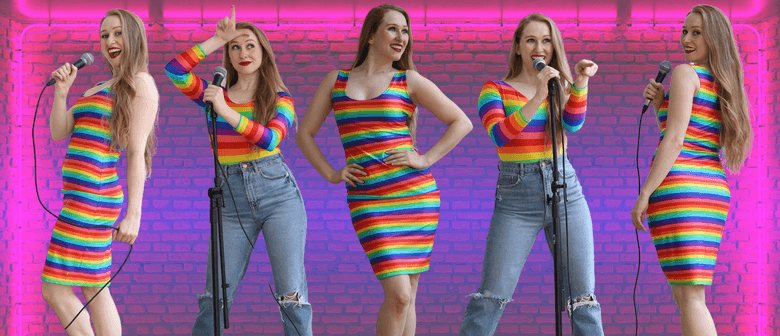Katie Hill
Piccinin meets me at the door of Ivy Bar and I’m instantly charmed. It’s a sweetly personal greeting between the performer and the audience member – it calls me to invest in the next hour. The next hour is funny, I enjoy myself, but it doesn’t elicit any guttural laughter, and I think it could have! To add some context, Piccinin’s show is marketed as an hour of story-telling stand-up; for me, it leans more on story-telling than the conventions of stand-up. I am all for stand-up comedians breaking these conventions, but I feel Piccinin neglects the one their Wellington audience wants the most: one-on-one audience interaction. The Ivy Bar stage is small, and Piccinin's closest audience member is less than a metre away. It seems unusual that Piccinin keeps her eye-line up towards the back of the audience for almost the entire show. I’d argue even in gigantic venues, it’s still a crowd-pleasing choice to make banter with the front row, they chose to sit there, it’s called the splash zone for a reason!
Piccinin’s stories of coming out in the 2000’s, and coming out again in 2010’s are entertaining with nuanced observations on queer culture rife with opportunities to connect with their immediate audience. To clarify, I’m not suggesting Piccinin prioritise crowd work over their story-telling – it’s not everyone's cup of tea – but if they want people to connect and not just listen to their story, a few simple moments to create a rapport wouldn’t go amiss. For example, there is a series of jokes where Piccinin lists the subtle things queer femmes add to their appearance so fellow queers can pick them out from a crowd. I see a few audience members lean over to their friends pointing out their short nails, or thumb rings – if Piccinin acknowledged this, I’m sure they could have milked a few more waves of laughter.
It’s the last ten minutes of the show I enjoy the most, Piccinin adopts more rage to her approach as she connects her stories to wider conversations on queer paradoxes in a heteronormative society. A joke about being overwhelmed by the patriarchal pressure to find a label causing them to identify as the ‘+’ in LGBTQIA+ grants Piccinin their biggest laugh of the night. It’s clear that the content is well-researched and rehearsed, but sometimes the segues and pauses feel too calculated. All in all, I’d encourage Piccinin to allow her comedy to breathe and to ground herself with the eager queers in front of her before launching into their life story. There is also a significant chance that Piccinin is still adjusting to kiwi crowds and hasn’t got enough field research to banter comfortably! I’d add that if Piccinin isn’t keen on direct crowd work then I’d encourage them to market the show as theatrical story-telling; it might set clearer expectations. Regardless, Piccinin’s sincere determination to come out louder every day warmed my queer heart, sending me out cheery-faced into torrential rain.
Lesbihonest is on for three more dates, the 3rd, 4th, and the 11th of March – get tickets from the Fringe website.






